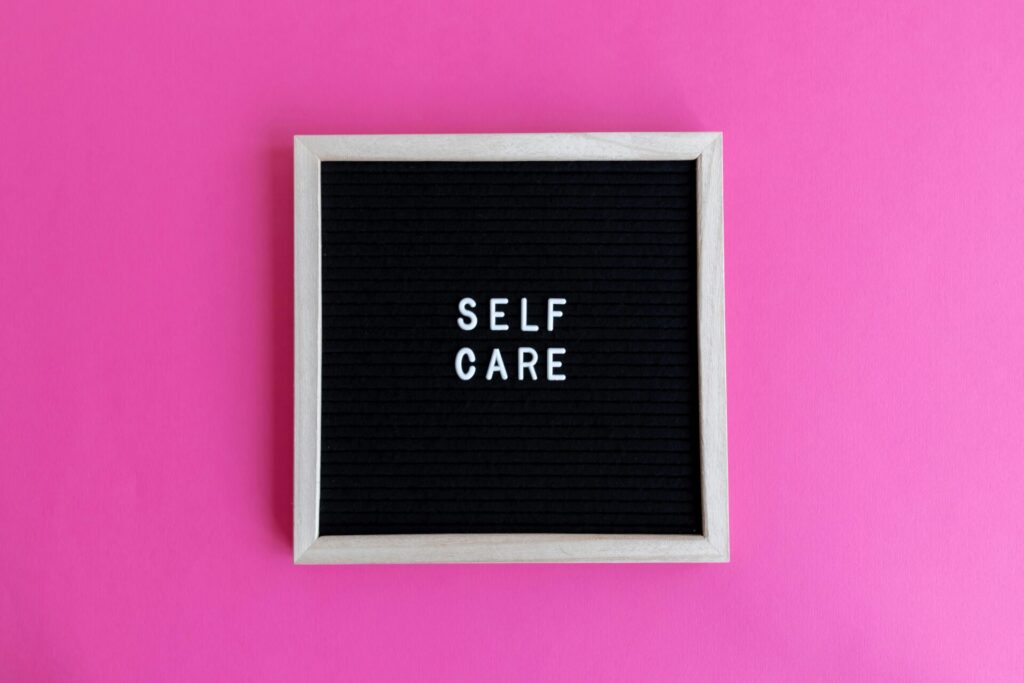
Many of us are familiar with the concept of self-care, but how many of us are actually making time for it? And what exactly does self-care entail anyway? International Self-Care Day is the perfect time to explore why self-care is essential for our mental health and how we can practice it in our daily lives.
The truth is there’s no one-size-fits-all when it comes to self-care. Because our own needs, lifestyle, and preferences are unique, our form of self-care might look different from our friends or family, and that’s okay! Practicing self-care simply means making time to do things that improve both our physical and mental health.
Unfortunately, self-care is often viewed as a luxury, rather than a priority. However, even what might be considered a small act can have a big impact on your mental health. Regular, quality self-care has been shown to improve mental health, enhance self-esteem and self-worth, increase optimism, and lessen symptoms of anxiety and depression. It can also help build resilience so you’re better able to handle life’s many stressors and challenges.
Engaging in quality self-care requires self-awareness. First you need to be able to identify your emotions and reactions, particularly those that are difficult. For example, anxiety might cause your heart rate to increase; fear might cause shallow breathing; anger or embarrassment might make you feel flushed. Then you’ll need to try out different forms of self-care to learn what works for you. Maybe it’s talking to a friend, meditating, or going for a walk. Just make sure it’s something you enjoy so you can stay consistent with it and reap the full benefits.
If you’re not already feeling inspired to start practicing self-care, or not sure what will work for you, here are some ways CMHA staff and members of our National Council of Persons with Lived Experience (NCPLE) practice self-care:
- Snuggling with pets
- Spending time in nature—going for walks, hikes, gardening, or just sitting outside
- Taking care of house plants
- Doing physical activity—going to the gym, yoga, swimming, walking, playing sports, etc.
- Taking medication consistently
- Meditating and journalling
- Crafting, reading, playing brain games, and being creative
- Spending time with friends and family
- Accessing mental and physical therapy
- Taking naps and prioritizing rest
Self-care is as much about doing things to help your mental health as it is about not doing certain things. One of our staff members notes, “For me, self-care is more than doing things that calm my nerves and clear my mind. It’s also about setting boundaries and time limits for social media or other behaviors that might add or lead to stress or anxiety.” It might also mean not overloading your schedule, so you have the time and energy to take care of yourself!

Self-care touches all aspects of our lives and helps us show up as the best versions of ourselves. It’s putting our oxygen mask on before we can help others with theirs. Another staff member notes: “As a parent, self-care has been challenging to incorporate consistently. I’ve learned to plan ahead to ensure I’m carving out time for things that I enjoy. My mood overall has improved and I’m better able to handle stress—especially in how I react to my children.”
With the majority of Canadians working between 35–45 hours a week—roughly one-third of their livesiv—self-care is also essential in the workplace. Katharine Coons, associate director of Workplace Mental Health notes that self-care in the workplace benefits employee mental health and helps organizations, too. “Self-care in the workplace isn’t just about individual well-being; it’s a strategic investment for organizations. By encouraging self-care, companies can expect reduced turnover, increased employee engagement, enhanced creativity, and a more resilient workforce capable of navigating challenges effectively.”
So, what are you waiting for? If you’re not taking care of yourself, who will?


